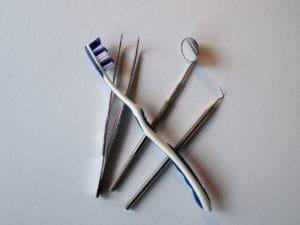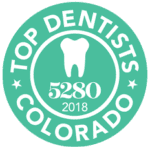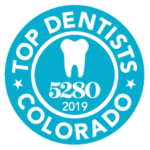When your body experiences pain, it’s usually a protective response indicating that something is wrong. Pain in the teeth is felt when the nerves inside the tooth react to a problem or sensation that is uncomfortable, but the possible causes of tooth pain vary considerably.
Tooth Sensitivity
Sensitivity of a tooth or teeth is a fairly common sensation and often presents as tenderness more than direct pain. It usually lasts a few seconds and is frequently triggered by hot or cold foods or liquids. Tooth sensitivity is not typically a sign of a serious problem but can be caused by a small area of decay, an exposed surface of the root of a tooth, a loose filling, or gum recession.
If you experience tooth sensitivity, work to keep your mouth and teeth clean to ensure there is no bacterial buildup. Use a soft toothbrush and consider trying toothpaste for sensitive teeth. Even rubbing a small amount of the paste directly on the area can help. Talk to your dentist about problems you may be having for a full checkup and to ensure there are no more serious problems.
Dull Ache or Pressure
If you are experiencing a feeling of pressure or an ache at the top of your mouth or near your top teeth, it may be caused by sinus pain or a sinus infection. The discomfort is usually referred pain from the actual source of the problem as some nerves are shared between the sinus pathways and the mouth.
See your dentist or your family physician if you suspect you may have a sinus problem or an infection. Waiting to see if the problem worsens can cause an infection, if present, to worsen or spread. A prescribed medication to resolve any problems is often a simple solution to remedy the root of the problem and associated pain.
Sharp Tooth Pain
If you bite down or chew food and feel pain, it may be caused by localized decay, a loose filling in a tooth, or a cracked tooth. Everyday actions of eating and talking can cause further damage or discomfort if not treated.
Make an appointment to see your dentist to examine and identify the issue and address the problem. Often simply removing the decay or replacing a filling is all that’s needed. If the tooth is cracked, there are several options available that can correct the problem and improve the appearance of the tooth. If the problem is serious, the dentist will discuss options to solve the painful condition.
Headache or Aching in Your Teeth
Do you ever wake with a headache of a dull ache in your mouth and teeth? For people with misaligned teeth or jaw, or those that clench or grind their teeth (often while asleep), this dull or continuous discomfort can be a result. While not usually a serious or threatening situation, it’s worth exploring ways to improve the alignment of your teeth or ease any involuntary over-tightening of the jaw.
Visit your dentist to talk about the discomfort you are experiencing. There are readily available options, such as Invisalign® braces, a mouthguard, or a retainer, that can encourage the teeth to be realigned for correct chewing or protect against teeth grinding.
Acute or Constant Pain and Swelling of the Gum
Any sudden, constant pain or severe tenderness of the gum can be signs of an infection.
If there are problems in the pulp, deep inside a tooth, infection is often the first symptom, which can cause considerable discomfort. An infection, abscess, or tooth pulp tissue dying is typically a response to decay that has entered the nerve or is coming close to it.
This is a situation where you want to see your dentist immediately. A thorough examination will identify and isolate the problem. Depending on the source of the issue, options are available (including a possible root canal) that can save the tooth and alleviate all pain.
Unsure about the discomfort you are experiencing in one or more of your teeth? Please contact us – we have a range of solutions available that can get you back to feeling healthy and well in no time at all.



